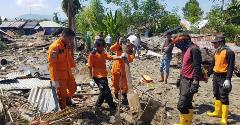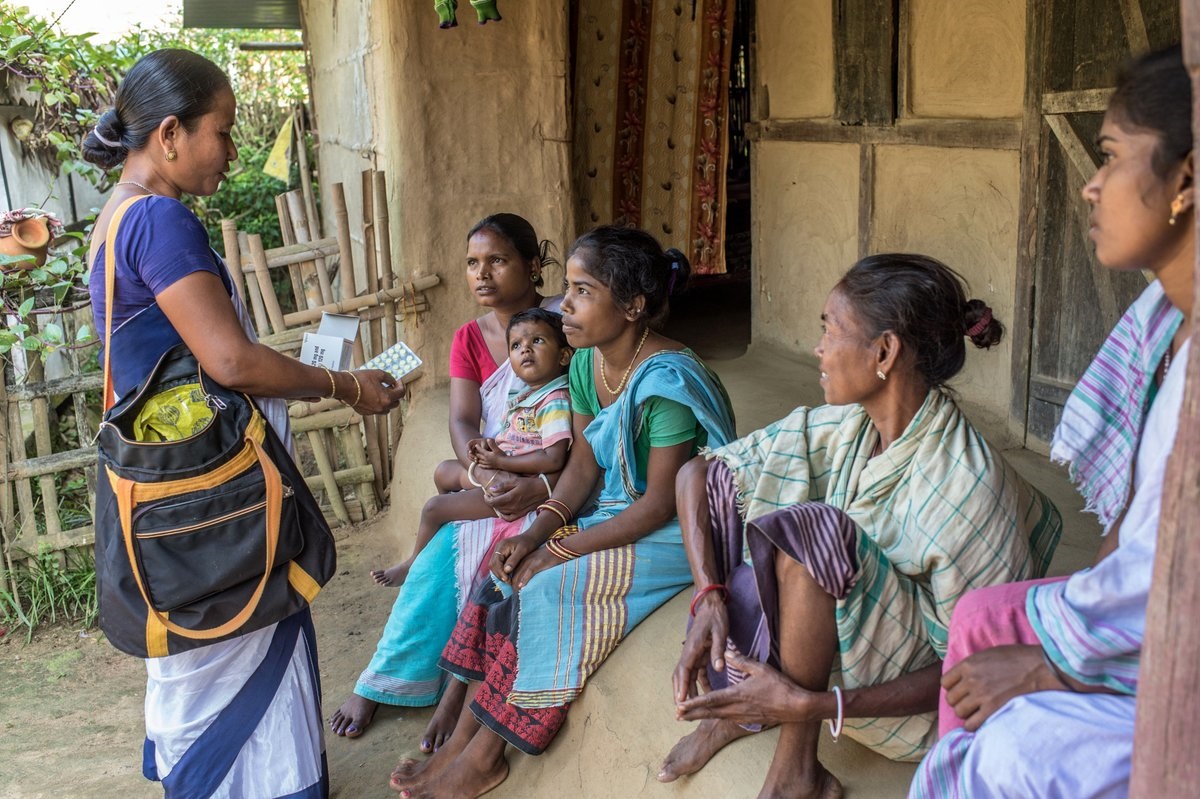To address the growing threat of antimicrobial resistance, Nepal has taken the lead and completed the Structured Operational Research and Training Initiative (or SORT IT) training initiative becoming the first country in WHO’s South-East Asia Region to do so.
Pioneered by the Tropical Disease Research (TDR) programme and conducted in partnership with Ministry of Health and Population (MoHP) and other stakeholders, the initiative promotes local research in antimicrobial resistance.
Antimicrobial Resistance (AMR) is one of the biggest public health and development threats facing humanity. AMR occurs when bacteria, viruses, fungi, and parasites evolve and no longer respond to antibiotics, making treatment with drugs very challenging. This increases the risk of spread of disease, severe illness, and death in humans and animals.
Misuse and overuse of antimicrobials by the health and animal sectors, and widespread contamination of water systems in the environment are the main drivers of drug-resistant pathogens.
The WHO South-East Asia Region is particularly vulnerable to the spread of drug-resistant bacteria - due to high population density, and insufficient water treatment, sanitation and infection control.
The Region has been making consistent efforts in combating antimicrobial resistance. As early as 2011, South-East Asia became the first WHO Region to adopt a ministerial declaration- the ‘Jaipur Declaration’ that calls for concerted action against antimicrobial resistance.
In 2014, combating AMR was made a Flagship Priority under the leadership of Regional Director Dr Poonam Khetrapal Singh. The Regional Committee passed a key resolution on AMR’s prevention and control in the following year.
Without effective antimicrobials, medicines used to treat and prevent infections in humans, plants, and animals, including during major surgery and cancer chemotherapy, is at much increased risk. For Nepal, there are the additional risks posed by a weaker health system, and relatively poor infection prevention, and control mechanisms.
The AMR-SORT IT initiative is geared to catalyze the evidence-to-action cycle from defining the most relevant research in countries to ensuring uptake of research findings. The key is to bring together existing – but unpublished – data and information and raise to publication standard. At present, the research findings from the AMR SORT IT initiative are in phases of advocating and implementing the recommendations at different levels and in respective institutions.
‘The studies will help us better understand the actual situation in Nepal; guide development of national strategies to tackle AMR with a One Health Approach; and address the implementation research gaps in the critical area of containment,’ said Dr Rajesh Sambhajirao Pandav, WHO Representative to Nepal. ‘The programme, made possible through the support of the MoHP, will now make Nepal data-rich, information-rich, and action-rich.’
SORT IT, is a global partnership by TDR - the Special Programme for Research and Training in Tropical Diseases - and different partners who support countries to build sustainable capacity to conduct and publish operational research and use the evidence for informed decision-making to improve public health. The World Health Organization has been supporting the programme technically and financially.
While TDR pioneered SORT IT conceptually, WHO SEARO, WHO Nepal and WHO Myanmar were engaged from the initial phase of the programme in the Region. WHO support included inception visits by TDR to both countries, with cooperation of Ministry of Health & Population (MoHP), Nepal; and Ministry of Health & Sports (MoHS), Myanmar.
Participants trained in scientific writing, data gathering and analysis
Notably, about 70% of local publications arising from SORT IT report an impact on policy and practice. In Nepal, each of the 18 participants completed and published research studies in renowned, peer-reviewed journals. Topics of these papers cover the overuse and misuse of antimicrobials in various settings, in hospitals and poultry farms. Others covered multi-drug resistance for various infections.
The studies are short, easy-to-read documents. They present scientific evidence and address some pertinent policy questions regarding AMR. The generated evidence will further advise healthcare workers to improve healthcare delivery.

Participants attending the AMR SORT IT course, Module III in Nepal, (Photo credit: WHO Nepal)
Participants included doctors, nurses, paramedical officers, and programme officers, often with little or no prior research experience. They received training while still completing research, often harnessing data which have never been published.
The sessions took participants through the principles and practice of scientific writing, principles of writing scientific English, and other aspects with hands-on guidance provided by experienced mentors. Each participant used a relevant research project to master practical skills of writing a study protocol, ensuring quality data gathering or/and analysis, publishing in a peer-reviewed journal, and using study findings to support evidence-based decision-making in public health.
Dr Rakesh Ghimire, a SORT IT participant, and assistant professor at the Department of Clinical Pharmacology, Maharajgunj Medical Campus, Institute of Medicine (IoM), Tribhuvan University Teaching Hospital, said, ‘Patients admitted to ICUs are highly vulnerable to certain bacteria which can grow in any favourable conditions.’
‘I was always concerned about such organisms contributing to AMR because if we do not know the resistance pattern, it can lead to further spread of the bacteria, treatment failure and even death,’ said Dr Ghimire whose findings have highlighted the need for increased support for not only surveillance and infection control, but also to strengthen antimicrobial stewardship.
‘Capacity building has always been one of MoHP’s major focus, and this programme developed the capacity to generate and promote data on the emergence, spread, and impact of AMR in Nepal,’ stated Dr Madan Upadhyay, Chief, Quality Standard and Regulation Division, MoHP.
SORT IT’s approach to AMR is also aligned with the strategic pillars of WHO’s Global Action Plan on AMR which include improving awareness, strengthening knowledge through surveillance and research, reducing the incidence of infection, optimizing the use of antimicrobials, and developing the economic case for sustainable investment.
‘When we first started sharing data to Global AMR Surveillance system (GLASS), we had many issues with the quality of data, and it’s completeness and timeliness. We wanted a way out to assess the problems. We also found out there were no data personnel dedicated for compilation,’ said Jyoti Acharya, chief medical laboratory technologist, Department of Health Services, MoHP, Nepal. She added: ‘My research will give the policymakers the justification for recruiting data personnel for Microbiology and stress the need of quality data to be submitted in international and national forums for preparing guidelines and policies related to AMR.’
Discussion with an AMR SORT IT participant to refine their manuscripts in Bagmati Province, Nepal (Photo Credit: WHO Nepal)
Sulekha Shrestha, another SORT IT Participant, and a senior nursing associate professor at Kathmandu University’s Nursing Dhulikhel Hospital, said: ‘We have been using surgical antibiotics prophylaxis (SAP) for almost all surgical patients, but we never assessed if it is done in a correct way or not.’ Ms Shrestha also said that evidence suggests how inappropriate SAP administration could result in AMR in surgical patients. She recommended that national committees should investigate SAP (surgical antibiotic prophylaxis) compliance in other settings in Nepal and advocate for revision of guidelines in this regard. SAP is defined as the administration of antibiotics in surgical practice.
A step towards digital innovation
Besides playing a role in strengthening health systems, better programme performance and improved public health, the SORT-IT initiative is also an example of innovation in digital technology –especially for implementing research during a pandemic. Furthermore, this project has helped build global engagement for AMR though networks and research partnerships.
In Nepal, the call centres, the media network, the capacity built, and the financial and technical support provided through AMR-SORT IT initiative, all contributed to improving communication and surveillance activities in Nepal. Together, they contributed to COVID-19 response and tackling antimicrobial resistance.
Dr Amrit Pokharel, Section chief of Epidemiology and Outbreak Management, Government of Nepal, shared that ‘from March 2020 to December 2021, there had been 286,451 responses to calls. This success resulted in the progressive scale-up of such centres to six more provinces in the country.’ Dr Pokharel added, ‘three organizations, including the Nepal Medical Association, Nursing Department of Epidemiology and Disease Control and the GTA Foundation have also established call centres and telemedicine facilities.’ To sustain this success, a sustainability plan needs to be developed to ensure viability of the call centres and the media network for future pandemics.
Dr Pokhareal added ‘I commend the valuable technical support provided by the AMR SORT IT participants debunking COVID-19 rumours, misinformation and concerns. The skills acquired through the SORT IT training proved useful for the review and validation of information, data analysis and effective communication, which helped generate simple and transparent messages for public awareness on COVID-19.’
Overcoming challenges posed by COVID-19
Applying the innovation promoted by SORT IT, involves combined research training and research implementation with hands-on mentorship by experienced mentors, empowering frontline health workers and new trainers. All the modules were designed to be hands-on, one-on-one training with experts guiding each participant. Bringing all the mentors and all partaking researchers together to complete all modules was one of the major challenges.
The 10–14-month SORT IT course was initially scheduled for 2020 but due to the COVID-19 pandemic was concluded at the end of 2021.
To overcome challenges posed by the pandemic, research training was done online with a virtual platform adapted for this purpose. Connecting mentors and participants from different regions virtually, facilitated completion of modules in 2021. For Nepal this was an innovative approach to training and should help sustain innovations in addressing antimicrobial resistance and towards strengthening health care systems in the country.







